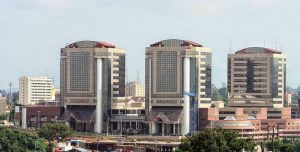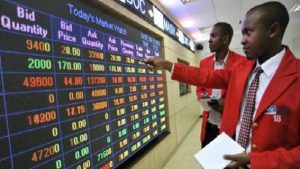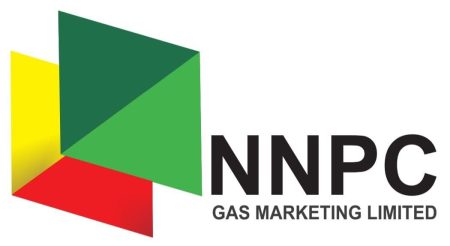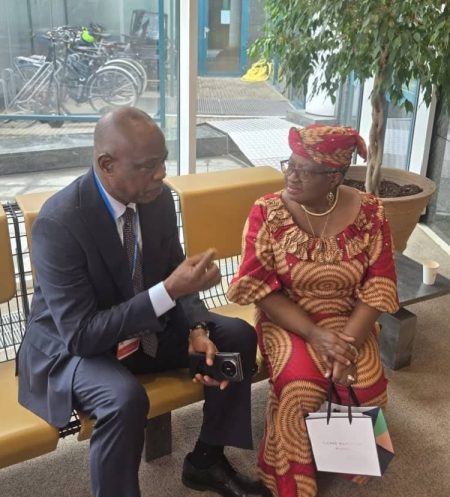*Advisory Council targets billions for company *National oil firm misses Q2 target for IPO

Chuks Isiwu & Mkpoikana Udoma
Lagos/Port Harcourt — Industry stakeholders, economists, capital market operators and other informed Nigerians are calling on President Bola Tinubu to effect a timely listing of the Nigerian National Petroleum Company Limited, NNPC, on the Nigerian Stock Exchange, NSE, to unleash its full potentials and boost the fortunes of the nation’s capital market.
They said the NNPC is due to be listed on the Stock Exchange and matured enough to float its Initial Public Offering, IPO – the sale of a company’s shares to institutional investors.
According to them, the national oil company will remain unattractive to both domestic and foreign investors until it becomes a public company with a solid foothold on the country’s capital market, duly listed and trading on the Nigerian Stock Exchange.
As per information last year by the Group Chief Executive Officer of the NNPC, Mele Kyari, the company, which became a commercial entity on July 19, 2022 with the coming into effect of the Petroleum Industry Act, PIA, was billed to launch an IPO by the second quarter of 2023. But, it has missed the target due, according to the company, to “deliberate effort to properly clean up its books towards recapitalisation”.
Experts are asking the president to expedite action on the matter and ensure the NNPC makes its entrance into the country’s capital market to take advantage of the huge capital available to companies seeking the financial markets to fund their business expansion.
Presidential Policy Advisory Committee
Along this same line of expansion of NNPC’s financial base, a Presidential Policy Advisory Council raised by Tinubu has advised that the company sells off its assets, including stakes in oil blocks to raise billions of dollars.
A report prepared for the new president by the committee proposes that the NNPC should become a minority shareholder in projects it currently controls, potentially generating more than $17 billion by the end of the decade, according to Bloomberg.
If adopted, the recommendations would alter the NNPC’s strategy of holding majority stakes in oil and gas joint ventures, JVs, with majors such as Shell Plc, and local producers that account for about a third of Nigeria’s crude output.
NNPC should “sell down interests in JVs to a minority position” and reduce its holdings in refineries, the report said. It recommended the new government “head-hunt competent, tested, reform-focused leaders” to run the company.
A sale of NNPC’s assets would help Tinubu meet an ambitious campaign pledge to nearly triple oil production to 4 million barrels per day, mbd, by 2030, according to the committee’s report, which was confirmed by the presidency. Nigeria currently produces about 1.43mbd, well below its full capacity due to pipeline theft, vandalism and declining investments.
The committee members included Austin Avuru, the founder and former chief executive officer of Seplat, and Abdulrazaq Isa, chairman of local energy firm Waltersmith Petroman Oil Ltd.
‘Take NNPC to Capital Market
Experts, who spoke to SweetcrudeReports, strongly advise that the president takes the NNPC to the capital market.
They, however, noted that before being listed on the Nigerian Stock Exchange or any other stock exchange, the NNPC would have to convert from a Private Limited Company to a Public Limited Company, PLC, to create the entry point.

A Public Limited Company, PLC, is a public-owned company that has offered shares of its stocks to outside investors like the general public, while a Private Limited Company, LTD, is a limited company which shares are not offered to the general public.
According to Dr Joseph Obele, a lecturer at the Department of Marketing, Ignatius Ajuru University of Education, the benefits of transiting NNPC Ltd to NNPC Plc are enormous, as it will give room for accountability, efficiency and profitability.
Obele, who is also the Chairman of Independent Petroleum Marketers Association of Nigeria, IPMAN, in Rivers State, said the best option for NNPC and Nigerians is for the company to transit to NNPC PLC and that the time to do so was “now”.
“The President of the Federal Republic of Nigeria cannot appoint or sack the board of directors once it is listed on the NSE and it becomes NNPC PLC. At that point, any Nigerian can own shares and also transfer such. That will boost transparency and abolish the long-time national cake syndrome that has dominated the psychology of the public.
“Amongst other benefits will be accountability, profitability, operational effectiveness, efficiency, better reliability, more flexibility, easy communication.
“The anticipated competitive threat of the biggest private refinery in Africa, Dangote Refinery coming up soon is another critical reason to make the NNPC a public limited company in a no distance time. Studies have shown that private investors on other sectors suffocate in any competitive market against the Dangote PLC, arising from the game theory adopted by the conglomerate.
“In most cases, Dangote PLC end up acquiring majority shares of its competitors and then takes over those companies. It is obvious that a conglomerate that private firms could not stand in a competition, likewise a government-controlled firm, might not survive the threat,” he said.
A policy analyst, Mr. Rowland Dappa, believes it was a welcome idea for the NNPC to go public. He, however, stated that with the way Nigerian politicians operate, few members of the political elite may hijack the NNPC shares and hold the company under ransom of markets share value.
Dappa, who is the African representative of Liberty International, an organisation with focus on policy and economic freedom, opined that NNPC trading it shares on NSE will encourage investors to invest in Nigeria’s energy sector.
“Nigeria business space on its own has a very strong negative perception from international investors. So, investing and buying shares in Nigeria is a 50/50 game of chance. But, it’s obviously okay for NNPC to sell it shares without political interference. It will boost the economy and encourage more investment inflow into the Nigerian oil and gas market” he said.
In calling for the listing of the NNPC on the Nigerian capital market, the President and Chairman of the Council, Institute of Capital Market Registrars, Oluseyi Owoturo, said: “NNPC has to be listed to stimulate interest in the market. The most exciting new listing was the MTN listing. Since then, there hasn’t been anything exciting of that nature. A listing of the NNPC has the potential to stimulate the market significantly. That could be potentially another MTN coming to the market. In terms of total market capitalisation, it will stimulate significant interest.
“I think it was in 2019 that Aramco was listed when the Saudi government sold less than 30 per cent of its stakes to the public. Aramco recently overtook Apple as the world’s most valuable company. Now imagine an NNPC listed on the exchange. Government control is reduced significantly and the impact it can have not just on the capital market but on the economy as a whole. The capital market is a barometer of how well the economy is doing. If the economy is not doing well, the capital market cannot do well,” according to The Punch.
Team Lead, Research and Strategies/ Data Analyst at Atlass Portfolios Limited, Olaide Baanu, also said: “The listing of a major state-owned enterprise like NNPC will attract both individual and institutional investors, thereby deepening the stock market. This influx of investors can lead to increased market activity and liquidity, providing more opportunities for investors and potentially driving the overall market growth.
‘Proper valuation of NNPC assets before going public’
An expert and professor of Energy Economics, Prof. Wumi Illedare, said though there is positive rationale for NNPC to go public, there must be proper valuation of NNPC assets and that a proper management team must be put in place to aid the transition.
According to him, the original idea to commercialise NNPC was to seek funding from the public in order to stabilise the funding of the company and its operations.

Illedare opined that the political elites must be prevented from buying shares in NNPC, while advocating for the adoption of the Nigeria Liquefied Natural Gas, NLNG, model, where the government has a big share but does not interfere in the daily running of the company and in determining who is appointed as Managing Director.
He stated: “In the unsigned Petroleum Industry Governance Bill which we made in 2018, the process of selling NNPC shares was laid out. Unfortunately, that was not included in the Petroleum Industry Act 2021.
“Before going public, NNPC must be properly valued, otherwise the share value will not be lucrative. Therefore, the management and Board must be cautious on this.
“Nobody will want to buy shares from an organisation where the management team is made up of politicians. There should be a Key Performance Index, KPI, to measure the performance of the Managing Director, MD, and if the MD does not meet the set KPI, he will have to resign. An agreement should be made to this effect even before the person is appointed.”
A renowned Economist and Chief Economic Strategist to the Economic Community of West African States, ECOWAS, Prof. Ken Ife, had in 2022 valued the assets of the NNPC at N50 trillion, noting that the national oil company should be listed on the Nigerian Stock Exchange.
According to him, the N50 trillion valuation included crude, gas, landed and intangible assets of NNPC Ltd. He said listing the NNPC on the stock exchange will ensure that all host communities, labour unions, oil and gas marketers, citizens and corporate organisations partake in the public quotation.
“When Nigerians have shares in NNPC, the bitterness of many persons that have mid-wifed militancy, illegal bunkering and oil theft will reduce to the barest minimum. It will practically be unreasonable for you to steal oil when you are a shareholder of the NNPC PLC. Militants and oil thieves are breaking pipelines because they have no stake with NNPC and they have nothing to lose,” he said.
‘Political elites should not own NNPC shares’
Illedare reiterated that no serious investor will want to invest in a company where the decision makers are politicians.
“NNPC must be careful of who buys its shares, so that what happens to the nation’s electricity distribution companies will not repeat itself, and so the shareholders do not run it aground. Political elites should be exempted from buying shares in the company. The government should divest from all JV assets. The U.S. government has no shares in oil companies operating in USA, neither does it operate a Joint Venture with oil operators in that country.
“The Ministry of Petroleum should be strengthened and restructured for strong policy formulations and regulations. Energy regulatory agencies and directorates must be strengthened to set up modalities for energy affordability, energy security and energy availability.
“Energy is the driver of any nation’s economy, I hope the new president doesn’t make himself the Minister of Petroleum just like Buhari. The Ministry of Petroleum needs full attention from a pragmatic, transformational leader, who can sanction and reward,” Prof Illedare said.
NNPC misses Q2 target for IPO
Meanwhile, the NNPC, which planned to embark on an Initial Public Offering of its shares to institutional investors by the second quarter of this year, has announced its inability to do so. The company said in its second quarter report for 2023 that it needed to clean up its books before launching the IPO.
It said: “NNPC Ltd is making a deliberate effort to properly clean up its books towards recapitalisation.
“The PIA provides that NNPC Ltd will be in a position to consider any initial public offer (IPO) in three years’ time.”
Follow us on twitter



